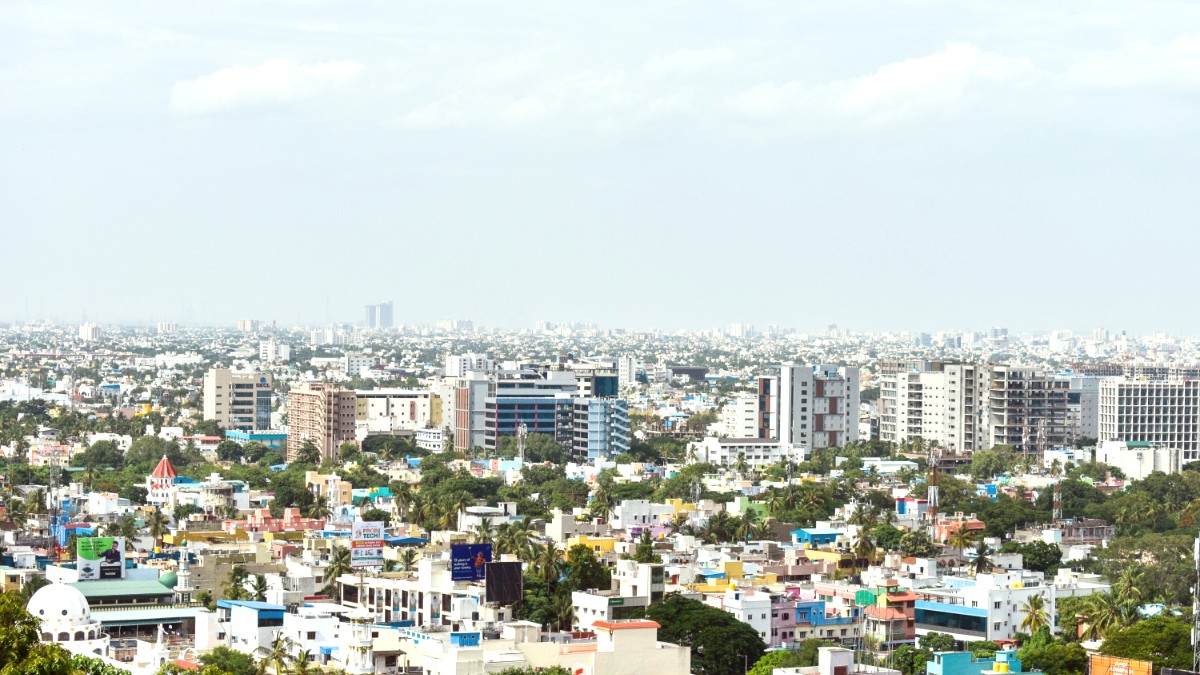
Tamil Nadu, India
Chennai's climate involves warm temperatures and high humidity year-round. The most comfortable period for visitors runs from January to March, with moderate temperatures and lower humidity. The Northeast Monsoon (October-December) brings significant rainfall.
Summer (March-June) brings intense heat, with temperatures peaking in May and June. Intermittent showers start from July to September, transitioning into the main monsoon season. Cyclones can occur during the monsoon period, affecting travel.
Pleasant weather conditions for sightseeing and outdoor activities. Humidity is lower. The city hosts numerous cultural festivals, including the Chennai Music Season in December-January and Pongal in January, providing a rich cultural experience.
Accommodation prices are higher, and popular attractions see larger crowds.
Extreme Heat & Humidity
Significant discounts on flights and accommodations. Fewer crowds at attractions.
Extreme heat and high humidity make daytime outdoor activities uncomfortable.
Pre-Monsoon Showers
Fewer tourists, potentially lower prices for flights and stays. Lush, green landscape after initial monsoon showers.
High humidity persists. Possibility of rain can disrupt outdoor plans.
Northeast Monsoon
Significant discounts on flights and accommodations. Fewer crowds at attractions.
Heavy monsoon rains, high humidity, and potential for flooding and cyclones.
January to March offers the best conditions for exploring the city's landmarks and enjoying outdoor spaces.
Plan your visit for December to January to experience the Chennai Music Season.
October-December is Chennai's main rainy period, with heavy downpours.
Potential for cyclones during Northeast Monsoon.
April-June brings intense heat; outdoor activity scheduling is wise.
October to March is ideal for migratory bird arrivals in nearby sanctuaries.
Chennai's monsoon differs from the Southwest Monsoon affecting most of India.
Travelers to India generally obtain a visa. The application process varies depending on your nationality and the purpose of your visit.
The e-Visa is a popular and convenient option for short-term stays, available to citizens of many countries. For longer stays, a regular visa through an Indian Embassy or Consulate applies.
Upon arrival at Chennai International Airport (MAA), travelers proceed through immigration checks. Biometrics, like fingerprints, may be taken. A customs declaration form is completed before clearing customs.
Costs vary based on your travel style and preferences. The local currency is the Indian Rupee (INR), symbolized by ₹. Major foreign currencies like USD, EUR, and GBP are exchanged at Chennai International Airport, authorized money changers, or banks.
Awareness of precautions and local emergency services protects your journey.
Yellow Fever certificate if arriving from/transiting risk countries.
Consult your doctor 4-6 weeks before for routine shots, Hepatitis A & B, Typhoid, Rabies, Japanese Encephalitis.
Dengue is prevalent. Use Mosquito repellent, especially REPEL 100 Insect Repellent, and wear long clothing.
Drink only sealed bottled water or water from a LifeStraw Go Water Filter Bottle.
Avoid tap water, ice cubes made from tap water, and unpeeled fruits or raw vegetables washed in tap water.
Eat hot, freshly cooked food. Choose busy street food stalls with high turnover for fresh ingredients. Hand sanitizer is advisable.
Carry Anti-diarrhea medication.
Chennai has modern, well-equipped hospitals with English-speaking staff (Apollo Hospitals, SIMS Hospital, Fortis Malar, MIOT International).
Police: Dial 100, Ambulance: Dial 108, Fire: Dial 101.
Comprehensive travel insurance covering medical emergencies and evacuation is strongly advised.
Chennai is generally considered safe. Petty theft, like pickpocketing or bag snatching, can occur in crowded areas. The city is susceptible to cyclones and flooding, especially during the Northeast Monsoon season.
Prepare for your trip with these important tips to ensure a smoother experience.
Keep digital copies of your passport, visa, and insurance policy details on your phone or cloud storage.
Download offline maps of Chennai on Google Maps for navigation without internet.
Inform family or friends of your itinerary and emergency contacts. Carry a physical list.